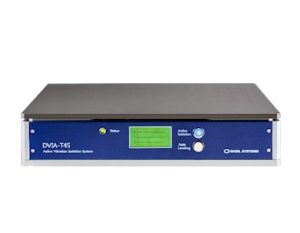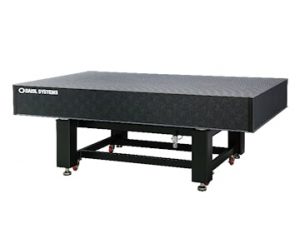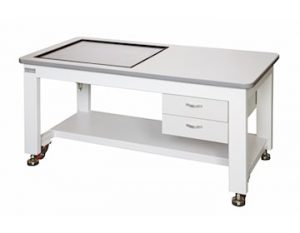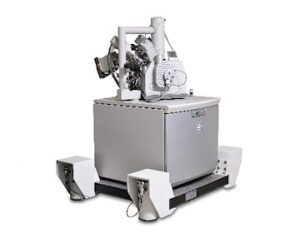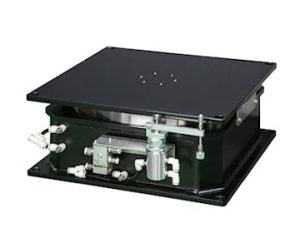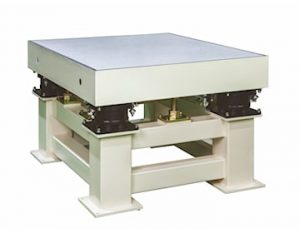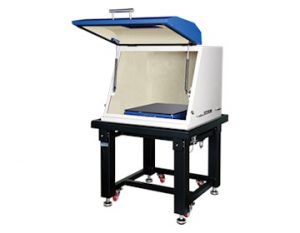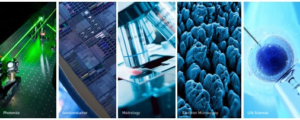 Installation Reports
Installation Reports
Overview
- The DVIA-MB3000 active vibration isolation platform is appropriately installed and functioning as intended
Vibration Isolation System Information
- Model: DVIA-MB3000
- Serial Number: 240201R4
Engineer
Byeonghun Cho from DAEIL SYSTEMS
Tuning Date
June 7, 2024
Number of Tuning Trial
1st tuning
Location
Hainan, China
Equipment
- Manufacturer: Thermo Fisher Scientific
- Equipment: TEM
- Model: Talos
Equipment Condition
The equipment is installed / IDLE
Tuning Request
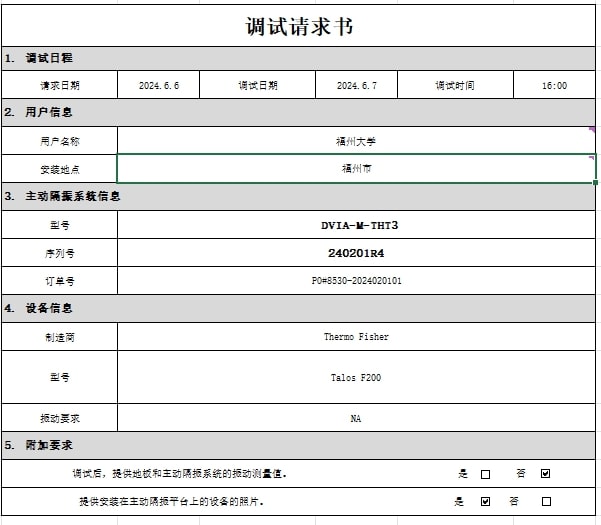
Equipment allowable vibration
Vertical: VC-E / Left to Right: VC-F / Front to Back: VC-F
Data and Image
Vertical Transmissibility
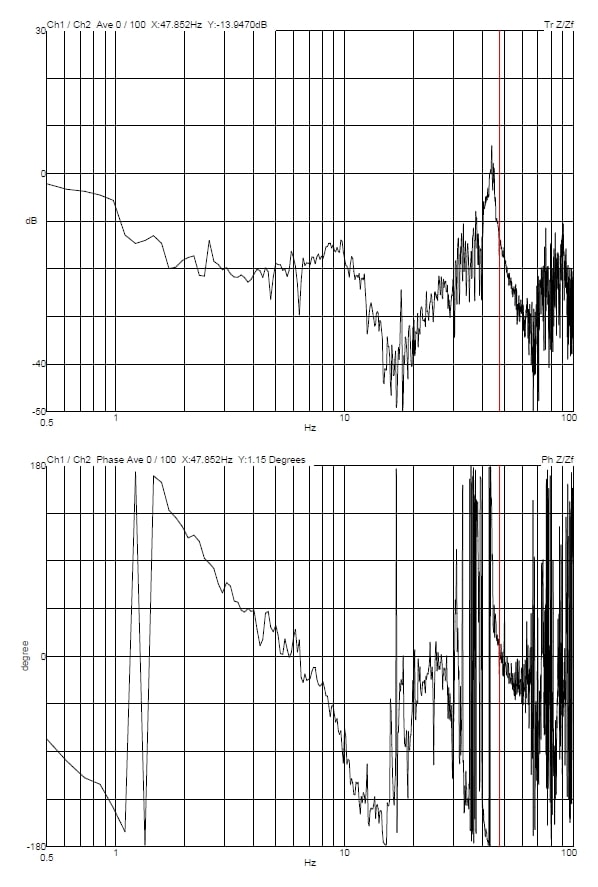
Left to Right Transmissibility

Front to Back Transmissibility
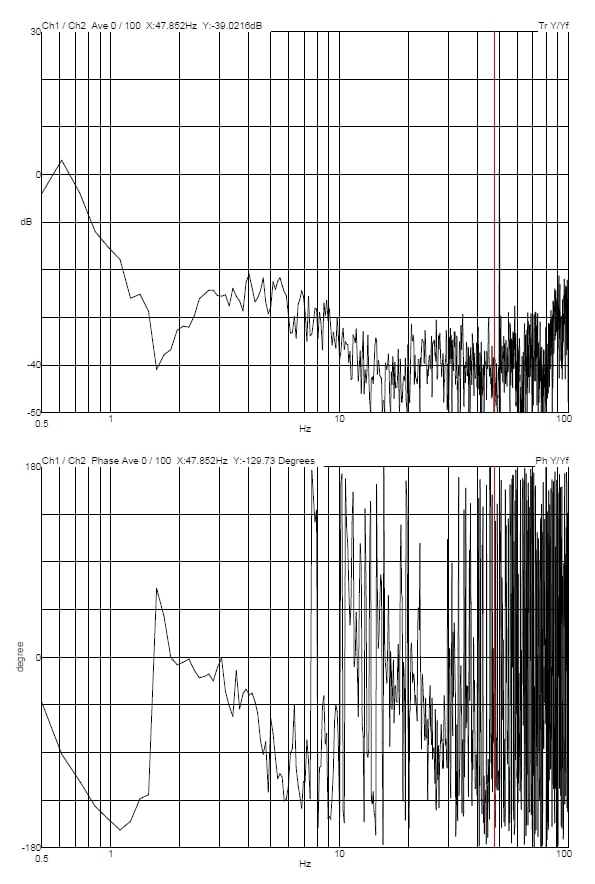
Equipment picture
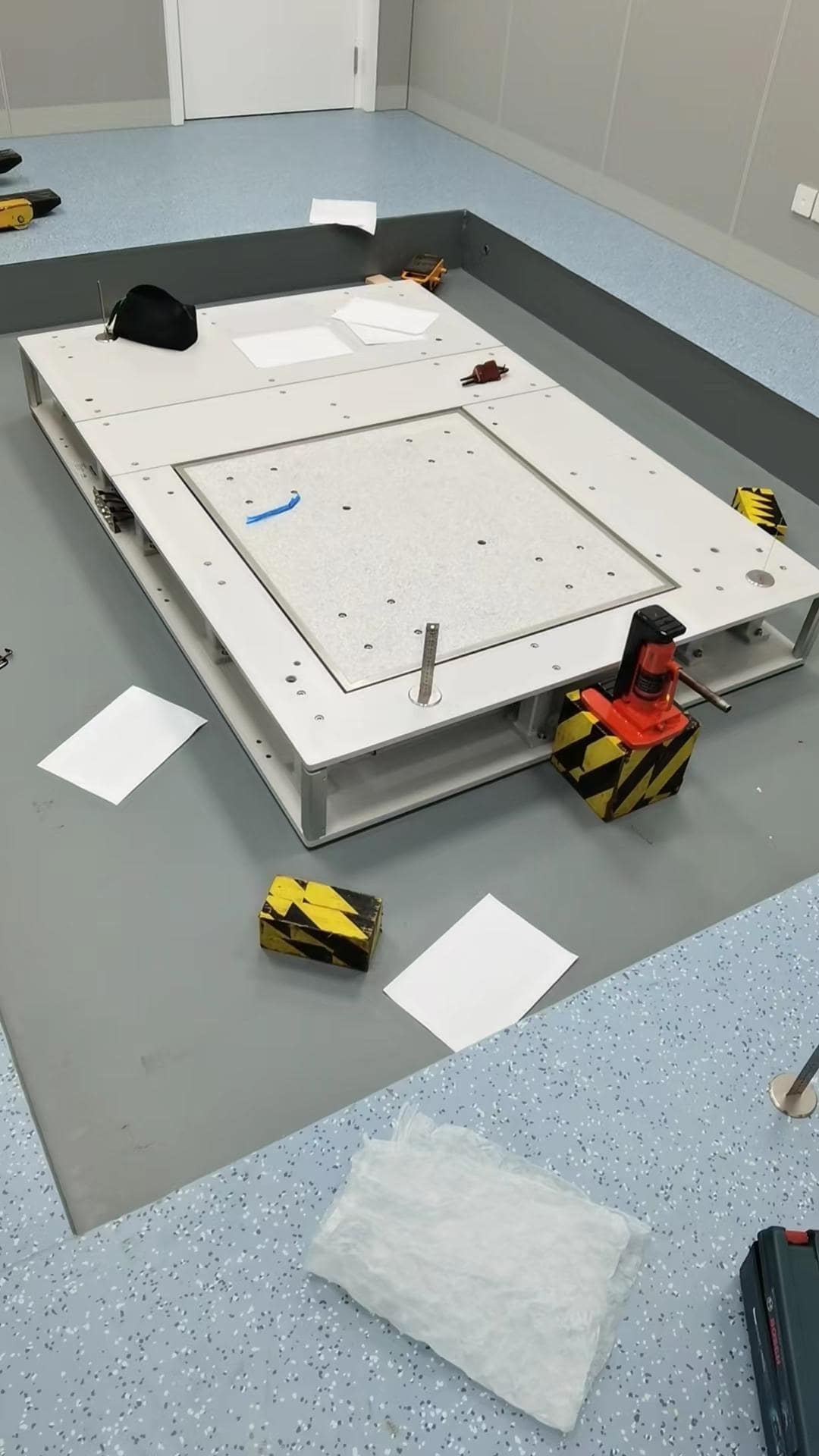
Reference
Generic Vibration Criteria
| Vibration Level Classification | Description | Vibration Allowance Criteria | |
|---|---|---|---|
| Amplitude1) µm/s (µin/s) |
Precision2) µm |
||
| Workshop (ISO) | Level where people can clearly feel vibrations, suitable for workshops and other non-sensitive areas. | 800 (32,000) | N/A |
| Office (ISO) | Level where people can feel vibrations, suitable for general office environments and places where vibrations are not a major concern. | 400 (16,000) | N/A |
| Residential Area (ISO) | Level difficult for people to perceive, suitable for sleeping areas. Also suitable for computers, hospital recovery rooms, semiconductor probe test equipment, and microscopes with magnification below 40X. | 200 (8,000) | 75 |
| Operating Theatre (ISO) | Level where people cannot perceive vibrations, suitable for surgical equipment and microscopes with magnification below 100X. | 100 (4,000) | 25 |
| VC-A | Level suitable for optical microscopes with magnification below 400X, precision scales, and projection aligners. | 50 (2,000) | 8 |
| VC-B | Level suitable for inspection equipment such as lithography with a linewidth below 3 μm and steppers. | 25 (1,000) | 3 |
| VC-C | Level suitable for optical microscopes with magnification below 1000X, lithography and inspection equipment with precision below 1 μm (less sensitive electron microscopes), and TFT-LCD steppers/scanners. | 12.5 (500) | 1 - 3 |
| VC-D | Level suitable for high-spec electron microscopes (SEMs, TEMs), E-Beam systems, etc. | 6.25 (250) | 0.1 - 0.3 |
| VC-E | Level suitable for laser systems with long beam paths or extremely sensitive equipment such as nanometer-scale E-Beam lithography. | 3.12 (125) | < 0.1 |
| VC-F | Level suitable for ultra-precision research facilities. Achieving this vibration level is difficult in most places (especially cleanrooms). This is a standard for evaluating vibration levels rather than a design standard. | 1.56 (62.5) | N/A |
| VC-G | Level suitable for ultra-precision research facilities. Achieving this vibration level is difficult in most places (especially cleanrooms). This is a standard for evaluating vibration levels rather than a design standard. | 0.78 (62.5) | N/A |
- 1) VC-A through VC-B represent amplitude values measured in octave bands from 8-80Hz, while VC-C through VC-G represent amplitude values measured in octave bands from 1-80Hz.
- 2) In the field of microelectronics, precision refers to the linewidth, and in the medical field, it refers to particle size.

